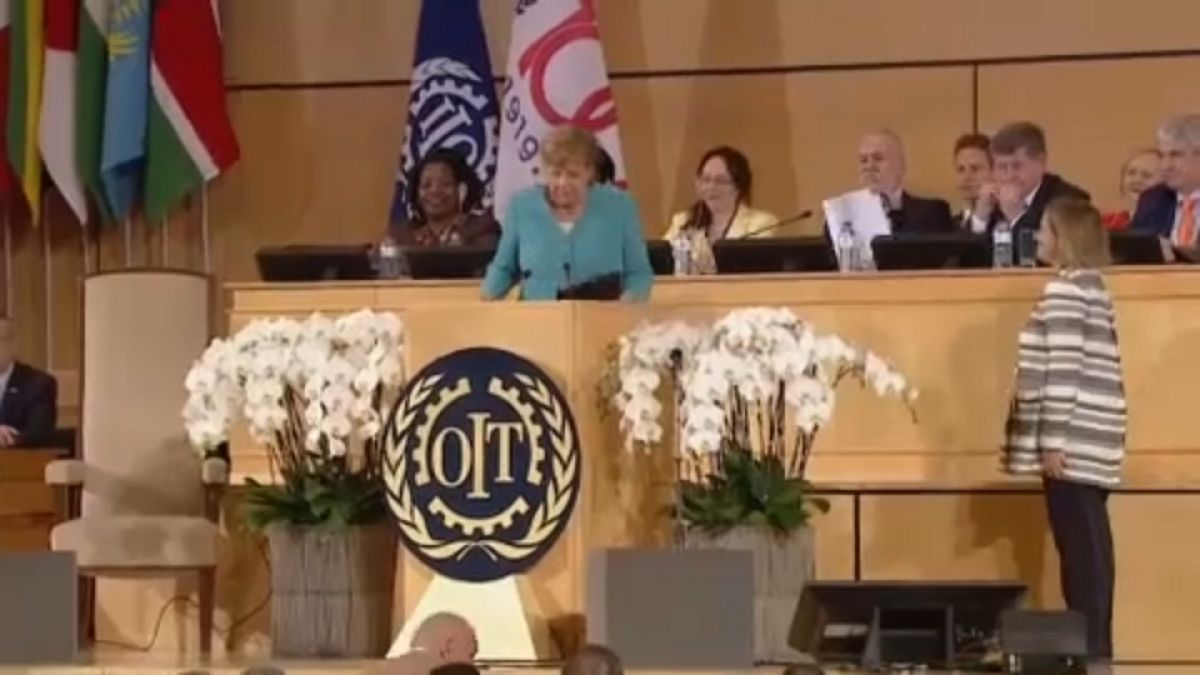2019 marks the centenary of the UN's International Labour Organisation, with the annual conference celebrating 100 years of protecting worker's rights
2019 marks the centenary of an important defender of worker's rights. The UN's International Labour Organisation is holding its annual conference as it celebrates 100 years of protecting employees. The conference is intended to look forward to the future of work and an ever-evolving work environment.
Those present included German Chancellor Angela Merkel, French President Emmanuel Macron and Russian Prime Minister Dmitry Medvedev.
"There is no doubt that the leading industrial nations especially benefit from globalisation and the international division of labour. And exactly for that reason these countries, the industrialised nations, which have a duty to not only safeguard fair working conditions for themselves, already have a lot to do, but we must also push for this elsewhere, in every corner of the global supply chain," said German Chancellor Angela Merkel.
French President Emmanuel Macron referred to the dangerous consequences of governments not sharing their innovations with workers.
"When people, regardless of their social backgrounds, don't have a share in progress, they cannot keep up with the political regime which is presented to them. This happens in our democracies. This attracts some people to authoritarianism," said President Macron.
Russia's Prime Minister Dmitry Medvedev spoke of the negative consequences of illegal sanctions, protectionism and trade wars.
"The behaviour of certain countries in the sphere of commerce and the economy is to become more aggressive. The global order, which was built over decades, is under threat," he said.
The ILO was created in the wake of World War One, in 1919 as part of the Treaty of Versailles. After the Second World War, it became an agency of the United Nations. Its membership is still growing, and numbers 187 countries today.
In the past, it's been a driving force behind the implementation of capped working hours, maternity rights and gender equality. But its next challenge will be dealing with the advent of automation, that's quickly rendering more and more human labour obsolete around the world.
